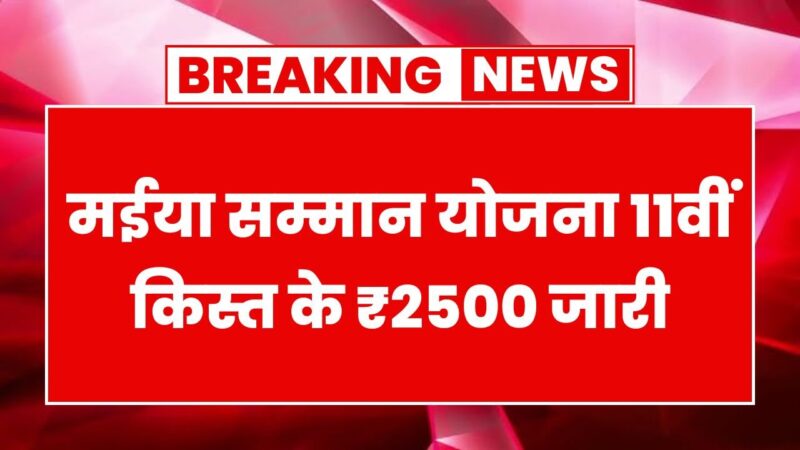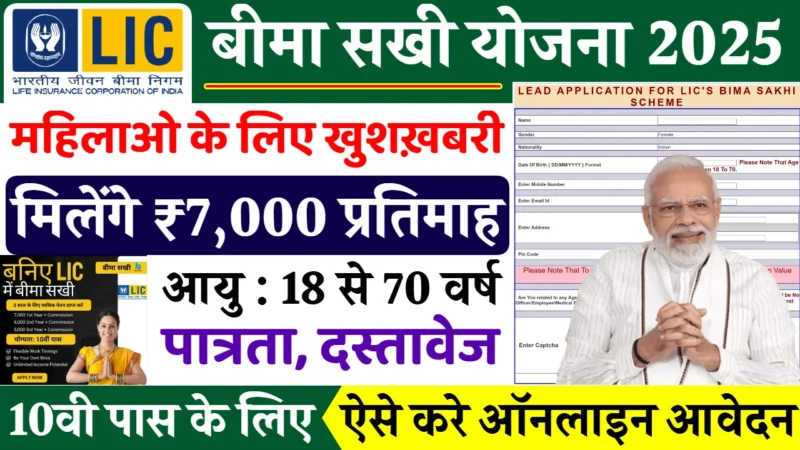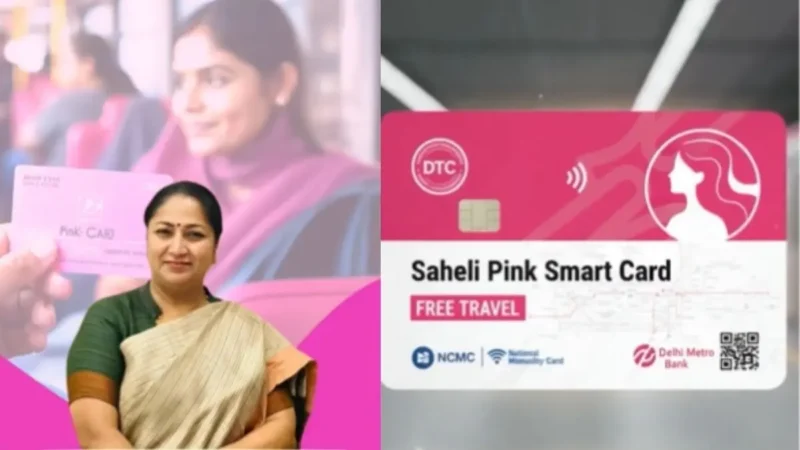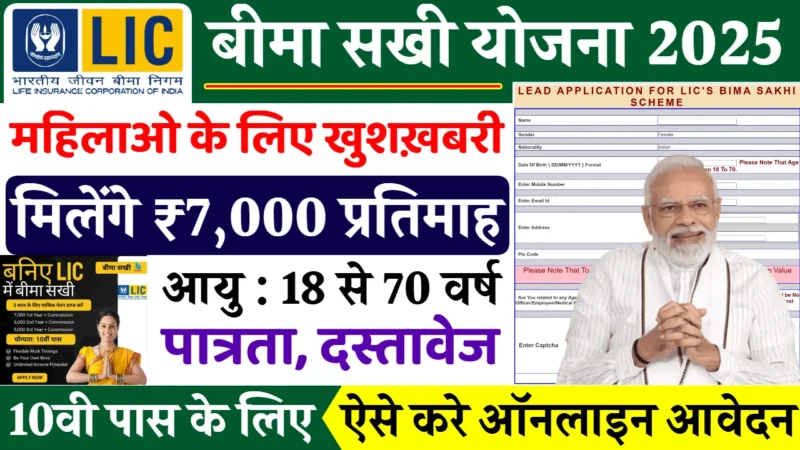Saheli Smart Card Delhi: Free Bus Rides for Women & Transgender Residents: Delhi Launches ‘Saheli Smart Card Delhi’ + Landmark School Recognition Reform
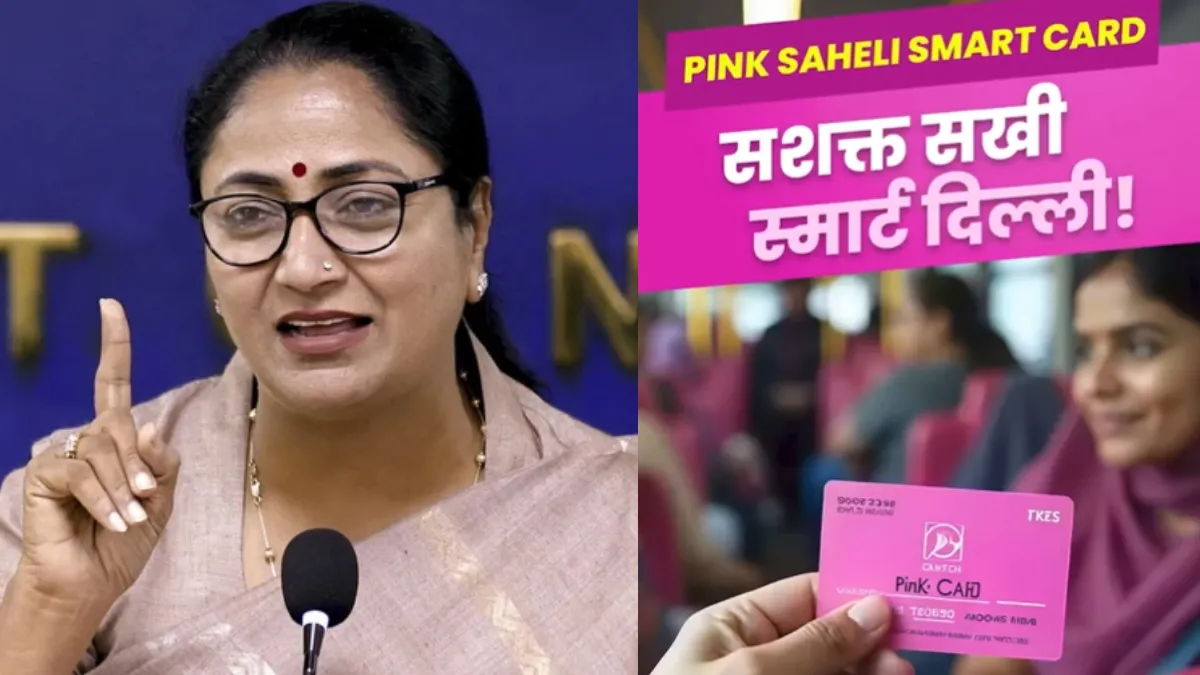
Saheli Smart Card Delhi: Discover how the Delhi Government’s new Saheli Smart Card Delhi will give women and transgender residents aged 12+ free rides on DTC & Cluster buses, and the simultaneous move to recognize thousands of unrecognized private schools — boosting access to education for under-privileged children. Read on for eligibility, application steps, benefits, and impact.
Introduction
In a bold move to advance gender equality and streamline public-services for women and transgender individuals, the Delhi Government has announced the rollout of the Saheli Smart Card Delhi — a digital transit pass that replaces the old “pink-ticket” system and grants free travel on the fleets of Delhi Transport Corporation (DTC) and cluster buses to women and transgender residents aged 12 and above.
Simultaneously, the government has initiated a recognition drive for private unaided schools operating in “non-conforming” areas of Delhi, enabling nearly 20,000 new seats for children from Economically Weaker Sections (EWS), Disadvantaged Groups (DG) and Children With Special Needs (CWSN).
Taken together, these announcements mark a dual-front reform: enhancing women’s mobility and strengthening educational inclusion across the capital. In this article we will explore what each scheme means, how they work, who is eligible, and what you need to know.
1. Saheli Smart Card Delhi: Free Bus Travel for Women & Transgender Residents
What is the Saheli Smart Card Delhi?
The Saheli Smart Card Delhi is a personalised contact-less transit card being introduced by the Delhi Government for women and transgender residents of Delhi (aged 12+). Its key features:
- Free rides on all DTC and cluster buses for allowed persons.
- Replaces the older “pink ticket” pass system, which issued free-ride tickets on each journey but had issues of misuse.
- The card will be issued under the framework of the National Common Mobility Card (NCMC), enabling future top-up or use for other modes of transport.
- Requires registration via an online portal, selection of a participating bank, completion of KYC (Know Your Customer) verification, and the card will be mailed to your address. India TV News
Why this matters
- Hassle-free travel: With one card you no longer need to queue for free pink-ticket passes each time you board a bus.
- Safety and dignity: A personal card with your name/photo helps prevent misuse and ensures genuine beneficiaries.
- Inclusivity: This extends free travel benefits to both women and transgender residents — signaling broader social inclusion.
- Modernization of public transport: Moving from paper tickets to a digital pass is in line with smart-city, digital India goals.
Who’s eligible & how to apply in Saheli Smart Card Delhi
Eligibility:
- Women and transgender persons who are residents of Delhi.
- Must be aged 12 years or above.
Application steps:
- Visit the DTC online registration portal.
- Provide proof of residence in Delhi (Aadhaar, ration card, etc.), Aadhaar card, PAN card, photograph.
- Choose a participating bank, complete KYC at branch.
- After verification the card will be dispatched to your registered address.
- On receipt, activate the card via the DTC Automatic Fare Collection System (AFCS) and start travelling.
Important points & caveats
- The free-ride benefit is restricted to DTC and cluster buses; if the card is used for Metro or other modes, standard fares may apply.
- While travel is free under the scheme, issuing banks may levy a nominal fee for card issuance or maintenance.
- The scheme’s full rollout was expected around August 15, 2025 (Independence Day).
- Only women/transgender residents of Delhi will be eligible — commuters from neighboring NCR areas may not qualify.
What about the old pink ticket scheme?
The pink-ticket scheme (launched in 2019) allowed free travel for women on buses, but:
- It was paper-based and had to be procured per ride.
- There were concerns of misuse and financial leakage.
- The smart-card initiative is intended to be a permanent, streamlined replacement.
What this means for daily commuters
For eligible women and transgender residents:
- One-time card, free unlimited bus rides within the city.
- No need to carry cash/ticket each time.
- Easier commuting for work, education, healthcare, family duties — improving mobility and empowerment.
- If you apply early and complete KYC, you will be among the first to benefit.
2. Education Reform: Recognising Private Schools in Non-Conforming Areas
What is the reform?
Under the leadership of Chief Minister Rekha Gupta and Education Minister Ashish Sood, the Delhi Government has announced that private unaided schools operating in non-conforming (illegal or non-zoned) areas can now apply for formal recognition.
Key details:
- The online application portal opens on 1 November 2025 and closes on 30 November 2025.
- Nearly 500 schools are expected to come under the purview, creating around 20,000 new seats for EWS/DG/CWSN students.
- Recognition means compliance with the Right of Children to Free and Compulsory Education Act, 2009 (RTE) & the Delhi School Education Act and Rules, 1973 including norms on infrastructure, teacher-qualifications, fee-transparency.
Why this matters
- Provides legal status to schools that have been unrecognised for years — thereby validating students’ credentials, certificates.
- Increases accessibility of schooling for under-privileged children by unlocking additional seats and legitimately recognised institutions.
- Improves quality and oversight: Recognised schools will have to meet safety, infrastructure and academic standards.
- Fulfils a constitutional right: The move implements Article 21-A (right to education) and addresses long-pending educational inequities.
Who benefits & how to apply
Beneficiaries:
- Private unaided schools in Delhi operating in “non-conforming areas” (areas not zoned for such institutions) that until now lacked recognition.
- Students — especially from EWS, DG, and CWSN categories — who will have more seats and credible recognised schools to attend.
Application process for schools:
- Schools must apply via the online portal (DoE) during the window (Nov 1 to Nov 30) with required documents & compliance evidence.
- The Directorate of Education (DoE) will scrutinise applications, inspect infrastructure etc., then list schools eligible for recognition.
Things to know
- Recognition is not automatic: Schools must meet the 73-point pro forma (infrastructure, safety, teacher qualifications etc.).
- Students & parents should ensure the school is recognised before enrolment — to safeguard certificate validity, eligibility for state benefits.
- The reform demonstrates government commitment to transparency, accountability and justice in education policy said Minister Sood.
Impact for the city
- Enormous uplift for children who studied in unrecognised schools — now the institution can gain recognition, making qualifications valid.
- Addresses supply-side constraint: Additional seats for children in EWS/DG/CWSN segments where waiting lists were long.
- Improves urban education infrastructure: Brings many schools under regulatory oversight, raising standards.
- Sets a precedent for inclusive governance in education aligning with policies like NEP 2020.
3. Putting It Together — Why These Reforms Matter
These two policy announcements — one in public transport for women/transgender persons, one in education for under-privileged children — reflect a broader strategic vision of the Delhi Government:
- Empowerment through mobility: Free bus travel for women/transgender persons removes a barrier to education, work and social participation.
- Access to education: Recognising un-recognised schools unlocks opportunities for thousands of children who previously lacked formal access.
- Digital governance & modernisation: Smart cards, online applications, KYC, digital verification illustrate shift to efficient, transparent systems.
- Targeted inclusion: Women, transgender persons, EWS, DG, CWSN groups are specifically highlighted — a sign of inclusive policy design.
- Accountability & reform: The Saheli card replaces a system (pink tickets) criticized for misuse. The school recognition reform addresses long-standing regulatory gaps.
4. For Readers — What You Should Do
If you are eligible (or know someone who is), here are immediate action-points you can take:
For Women / Transgender Residents (Bus Travel)
- Check you are a resident of Delhi (with valid proof of address).
- Visit the DTC’s website/portal and apply for the Saheli card once open.
- Gather documents: Aadhaar, PAN, photograph, proof of residence.
- Complete bank KYC process promptly — choose a bank participating in the scheme.
- Once you receive the card, activate it and start using for free bus rides.
- If you commute frequently by bus, this will save you time, money and hassle.
For Parents / Students / School-Managers (Education Reform)
- If you are at a private unaided school in a non-conforming area: check eligibility and apply for recognition during application window (1-30 Nov 2025).
- Parents should verify whether schools are recognised under the DoE before enrolment — assure certificate validity, quality, safety norms.
- Students from EWS/DG/CWSN categories: watch for additional seats opening up as part of this reform.
- Monitor the DoE’s notifications for list of recognised schools post-evaluation.
For Civic-Minded Readers
- Spread awareness among communities: women who ride buses, schools that are unrecognised, parents waiting for seats.
- Use this information for blog posts, social media, local support groups to help ensure eligible people do not miss benefits.
- Stay updated: The actual rollout timelines, bank partnerships, school recognition lists will be published — keep an eye on official websites.
5. Frequently Asked Questions (FAQ)
Q: When will the Saheli Smart Card Delhi scheme begin?
A: The announcement suggested rollout by around August 15, 2025. Registration/application may begin earlier; you should check the official DTC portal for live updates.
Q: Can women from Ghaziabad/Noida (NCR) avail the free travel under this scheme?
A: As of the announcement, only residents of Delhi (with Delhi address proof) are eligible. Adjacent NCR commuters may not be eligible under this card.
Q: Does the free travel apply to Metro or auto-rickshaws?
A: Not yet. The free travel benefit is for DTC and cluster buses only. Other modes like Metro may require regular fare unless future integration is announced.
Q: What happens if my school is unrecognised and doesn’t apply?
A: Operating without recognition risks certificate invalidation, no government oversight, and students may face difficulty later on. With this drive, schools should apply during the window to become recognised.
Q: Are there any cost or maintenance charges for the smart card?
A: The Government has said that travel benefit will be free, but banks may charge a nominal fee for card issuance/maintenance.
Q: After recognition, will private schools need to meet additional norms?
A: Yes. They’ll have to align with RTE Act norms and Delhi School Education Act/Rules: infrastructure, teacher qualifications, fee transparency, safety etc.
6. The Bigger Picture: Empowered Citizens, Stronger Capital
These two reform-moves in Delhi reflect a forward-looking governance agenda. By combining mobility reforms for women/transgender persons and educational inclusion for under-privileged children, the capital is positioning itself as a more inclusive urban ecosystem.
In the transport realm: mobility is critical — for women, access to safe, affordable public transport opens up opportunities for education, employment, and social participation. In the education realm: recognition of schools means many children who were in legal limbo now have access to legitimate schooling pathways, improving life prospects.
For your blog or coverage (especially if you write for your site maayras.com covering technology / policy / urban life), this is a powerful story of digital-enabled public service, gender-based inclusion, and education reform — combine stats (ages-wise eligibility, seats created), application checklists, tips for benefiting individuals, and a critical view of implementation timelines and challenges.
Conclusion
The Delhi Government’s introduction of the Saheli Smart Card Delhi and the parallel school-recognition drive are impactful, timely, and socially significant. They offer immediate benefits (free bus travel, legal recognition for schools) while also signalling deeper structural improvement (digital ticketing, regulation of private education) in the capital.
If you’re a woman or transgender resident of Delhi, this is your chance to secure hassle-free, free bus travel. If you’re involved with or attend a private school in non-conforming area, this is a window to attain legitimate recognition and ensure better outcomes for students.
Keep your documents ready, monitor official portals for registration windows, and act promptly. These are reforms designed to empower — the journey starts the moment you apply.



